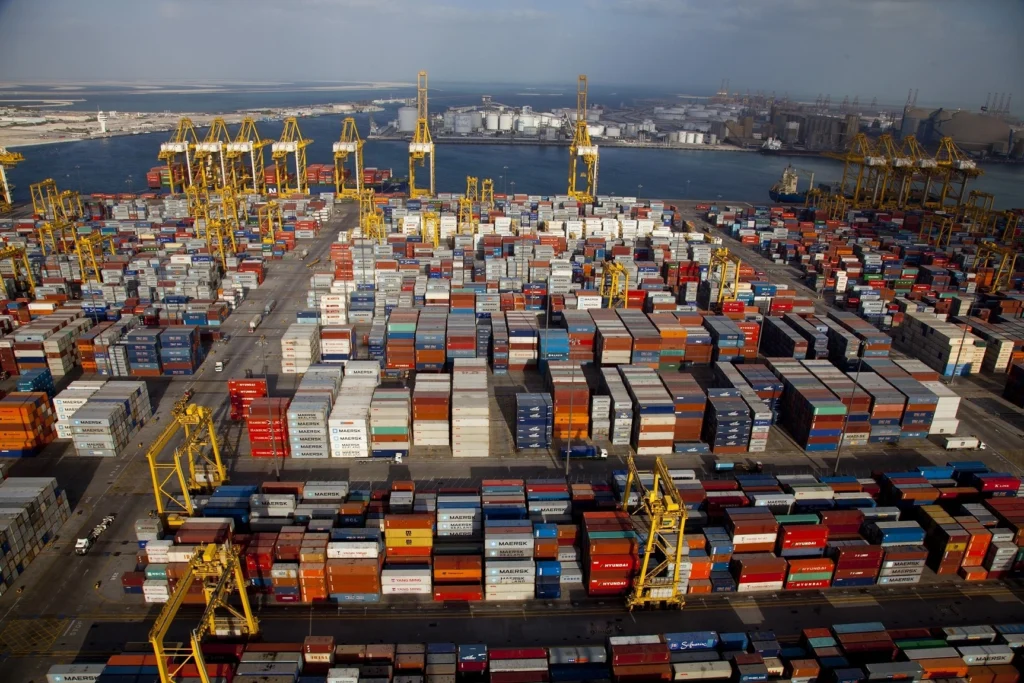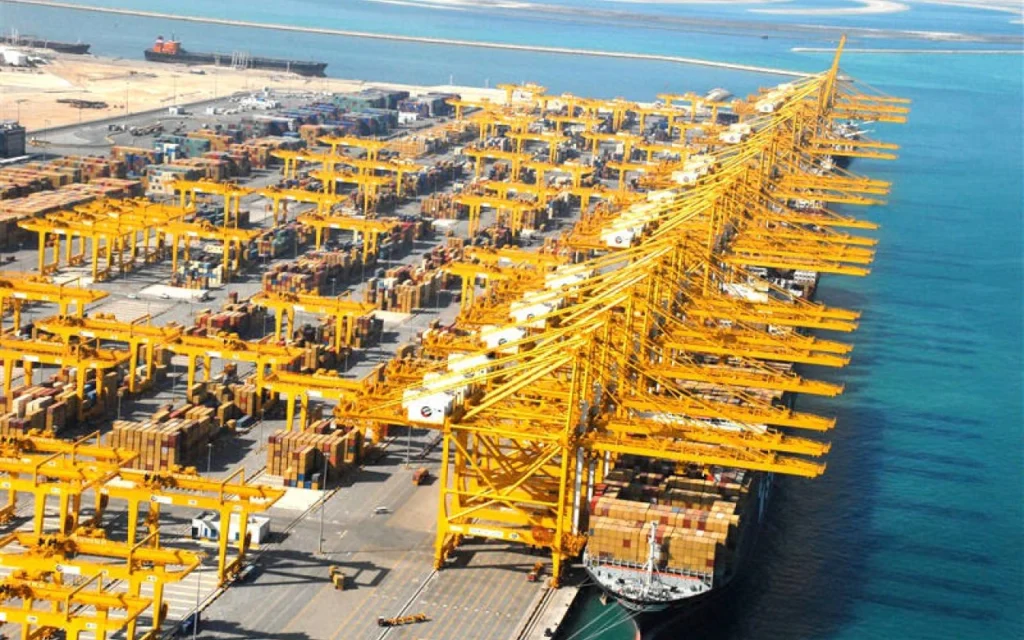Jebel Ali Port is a global maritime hub and the largest seaport in the Middle East. Located in Dubai, United Arab Emirates (UAE), it plays a critical role in international trade, logistics, and commerce. Managed by DP World, Jebel Ali Port is known for its advanced infrastructure, strategic location, and world-class services. The port is not just a gateway for cargo but also a driving force behind the UAE’s economic growth. With its state-of-the-art facilities, it handles millions of TEUs (Twenty-foot Equivalent Units) annually, making it one of the busiest ports in the world.
In this article, we will explore the history, operations, significance, and future of Jebel Ali Port. We’ll also examine how it supports global trade and contributes to Dubai’s economy.
History and Development of Jebel Ali Port
The Vision Behind the Port
Jebel Ali Port was constructed in the late 1970s to support Dubai’s growing trade and logistics sector. At the time, Port Rashid was the primary port, but with increasing demand, a larger facility was necessary. The development of Jebel Ali Port was part of Dubai’s broader vision to become a global trade hub.
Expansion Over the Years
Since its inception, Jebel Ali Port has undergone numerous expansions. Today, it boasts more than 67 berths, multiple terminals, and cutting-edge cargo-handling technology. The port has consistently invested in automation, digitization, and smart logistics to enhance efficiency.
Strategic Location and Connectivity
Jebel Ali Port is strategically located along major global trade routes, providing seamless access to markets in Europe, Africa, and Asia. Situated near Jebel Ali Free Zone (JAFZA), the port benefits from its proximity to over 8,000 multinational companies operating in various industries. This connectivity strengthens Dubai’s position as a logistics powerhouse.
Facilities and Infrastructure
Container Terminals
Jebel Ali Port has three primary container terminals equipped with modern cranes and automated systems. These terminals ensure smooth loading and unloading of cargo, reducing turnaround time for shipping companies.
Bulk and General Cargo Handling
The port accommodates various cargo types, including bulk, breakbulk, and roll-on/roll-off (RoRo) shipments. Its specialized terminals cater to different industries, from oil and gas to automotive and construction.
Advanced Warehousing Solutions
With world-class warehousing facilities, Jebel Ali Port offers temperature-controlled storage, bonded warehousing, and specialized logistics solutions for perishable goods and high-value cargo.
Jebel Ali Free Zone (JAFZA): A Trade Powerhouse
Jebel Ali Free Zone (JAFZA) is an integral part of the port’s success. As one of the largest free zones in the world, JAFZA provides tax incentives, 100% foreign ownership, and streamlined business operations. This has attracted global companies, enhancing Dubai’s reputation as a business-friendly destination.
Role in Global Trade and Economy
Contribution to the UAE’s GDP
Jebel Ali Port significantly contributes to the UAE’s GDP, facilitating trade worth billions of dollars annually. Its efficiency and capacity have positioned Dubai as a leading logistics and maritime center.
Key Trading Partners
The port serves major trading partners, including China, India, the United States, and European nations. It acts as a vital transshipment hub, linking manufacturers and exporters worldwide.

Smart Port and Technological Advancements
Jebel Ali Port has embraced digital transformation to enhance operational efficiency. Some of its key innovations include:
- Blockchain Technology: Ensuring secure and transparent transactions.
- Automated Cranes and Robotics: Reducing human error and increasing productivity.
- AI-Powered Logistics: Optimizing supply chain management.
- Smart Gates and RFID Systems: Improving security and tracking capabilities.
Sustainability Initiatives
As part of DP World’s commitment to sustainability, Jebel Ali Port has implemented green initiatives, such as:
- Solar Energy Integration: Reducing carbon emissions.
- Waste Management Programs: Promoting recycling and eco-friendly practices.
- Eco-Friendly Cranes: Using energy-efficient cranes to cut down fuel consumption.
Challenges and Future Prospects
Challenges
Despite its success, Jebel Ali Port faces challenges such as global trade disruptions, geopolitical tensions, and the need for continuous technological upgrades.
Future Expansion Plans
To maintain its competitive edge, Jebel Ali Port is planning further expansions, including:
- Additional berths and deep-water channels.
- AI-driven supply chain solutions.
- Strengthening partnerships with global shipping lines.
Conclusion
Jebel Ali Port is more than just a seaport—it’s a symbol of Dubai’s economic ambition and innovation. With its strategic location, world-class infrastructure, and commitment to technological advancements, the port continues to drive global trade and logistics. As it expands and modernizes, Jebel Ali Port will play an even greater role in shaping the future of global commerce.

